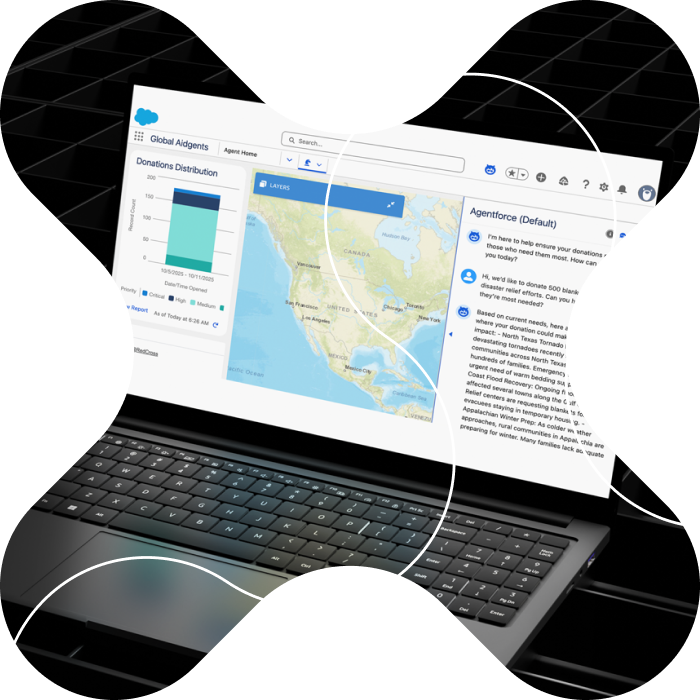TL;DR: This article dives deep into what you should anticipate and how to gear up for your tech interview. We've put together some valuable tips and guidelines to prepare in advance for this crucial part of the selection process and help software developers showcase their expertise during the interview.
You’ve made it through the initial hurdles, and now it’s time for your technical interview. This crucial part of the recruitment process may seem daunting, but understanding what to expect and being prepared for it are the keys to success.
Taking your time to conduct thorough research, reflecting on your past experiences, and putting your problem-solving skills into practice can help you breeze through the next stage. In short, preparation is crucial – and that’s precisely what we are here for.
Whether you’re on the lookout for a new job or exploring fresh opportunities, this newsletter aims to guide you in acing your upcoming technical interviews and passing with flying colors.
What to Expect During a Technical Interview?
First, let’s break down what this stage is about. Technical interviews focus on assessing a candidate’s hard skills and tech knowledge. In the realm of software development, this part of the selection process aims to test devs’ abilities to write clean, efficient code, their problem-solving skills, and their understanding of the fundamentals of their field.
As the goal is to determine if a candidate is the right fit for the specific role they are applying for, technical interviews typically involve discussing previous projects, technical decisions, and well-reasoned strategies. Also, developers are often presented with coding challenges, algorithmic problems, or real-world programming tasks that they must solve within a set time frame.
So, let’s focus on getting ready. How can you be well-prepared for your technical interview?
Setting the Stage for Your Tech Interview
First things first, technical interview preparation starts with researching the company, its industry, its clients, and its culture. To dive deeper into their world, you can study company-specific topics, such as their latest projects and achievements, check out the technologies they work with, and keep an eye out for any noteworthy news involving it.
Also, pay close attention to the requirements outlined in the job description, as they provide valuable clues for understanding what the company is looking for and the qualifications you need to meet.
This is basic yet vital information that will help you get ready for what's coming. The info gathered in this initial stage will help you gain more insights into the projects you may work on, the specific tech or languages you’ll be asked about, and even enable you to reflect on your prior relevant experiences. You can then choose what to highlight when speaking with recruiters about your work.
Related read: Senior Questions to Expect in Your Developer Interview
Showing Your Mastery of the ABC's
Now that you’ve done your research, you can shift your attention to preparation. Ease into your interview prep by practicing your introduction and keeping examples ready. Review past projects and challenging situations to have well-practiced ideas for the interview. This will help you gain confidence and ensure you're ready to discuss your qualifications and experiences.
Go over the basics and get ready to answer questions that are fundamental in your field. Technical interview questions will vary depending on your specialization, and they might cover specific tech, your understanding of the software development process, best practices, and agile methodologies.
Leveraging mock interviews to test yourself is a great way to gain confidence, identify areas for improvement, and fine-tune your responses. There’s a variety of platforms that provide the resources and practice opportunities to help you shine in your next technical interview:
- Interviewing.io lets you have mock technical interviews with seasoned engineers from top-notch companies. It's a safe and anonymous space where you can see the kinds of questions you might face and work on your answers without any pressure. Plus, you can get real-time feedback, which can be invaluable for your growth.
- Pramp is a peer-to-peer platform for practicing technical interviews. It customizes each practice session to suit your needs, finding a partner who matches your schedule, practice goals, and programming language preferences. It's a great exercise to identify your pain points, boost your confidence, and enhance your tech skills.
- Hello Interview offers a combination of options. You can practice with their AI tool, which has been trained by industry experts to help you tackle real system design, behavioral, or coding questions and provide you with instant feedback. You can also opt for mock interviews with professionals who will assist you in getting ready.
Practice Makes Perfect: Your Tech Skills in Action
Another common practice in technical interviews involves problem-solving exercises, coding tasks, or programming challenges. This way, recruiters can assess your ability to apply your knowledge across various technologies, languages, and frameworks.
To get ready for these tests and show off your skills, you can practice solving coding and algorithmic problems on sites like LeetCode, HackerRank, or CodeSignal.
- LeetCode offers a wide range of coding challenges, algorithm problems, and technical questions commonly encountered in interviews. This platform allows you to apply your problem-solving skills, improve your coding efficiency, and prepare for technical interviews.
- CodeSignal offers interview-specific features like coding interviews and practice assessments commonly used to evaluate candidates. They also provide a variety of resources to help you prepare for a technical interview, such as their Coding Assessment Checklist.
- HackerRank enables devs to practice their coding in multiple programming languages, tackle algorithmic problems, explore data structures, and even take part in coding competitions. It also offers interview preparation kits customized for specific roles in tech.
While these platforms are just a few examples, the possibilities are limitless. Find the one that aligns with your specific needs and sharpen your skills!
Now It’s Time to Showcase Your Skills
By now, you've practiced your introduction, reviewed your past experiences, strengthened your interviewing skills, and successfully tackled challenging exercises. As the finishing touch, we'll share some strategies to keep in mind during your interview:
Use the STAR Method to Structure Your Answers
STAR stands for Situation, Task, Action, and Result. It helps you explain the context, the challenge you faced, the actions you took, and the outcomes. This approach to crafting responses allows the interviewer to grasp your experience, input, and learning. Don't be shy about taking credit for your contribution and effort!
Communicate Your Thought Process Clearly
While problem-solving, narrate what you're doing so your interviewer gains insight into your decision-making and the reasons behind your choices. Explaining your approach can show you're a strong candidate. If you're not used to it, practicing talking as you code when doing sample problems can help you perform well during the interview!
Don't Hesitate to Ask Clarifying Questions
When encountering a problem, don't be afraid to ask for clarifications or even seek guidance. Learning from others and collaborating with your peers are also valuable skills worth cultivating. Keep in mind that, in addition to technical expertise, developers are often valued for their soft skills, particularly in communication and teamwork.
New Opportunities Await!
We hope you put our tips and tricks into practice to help you navigate to the next stage and land your dream job. At this point, you're well-prepared and ready to ace your upcoming technical interview. Best of luck!
At Nearsure, we’re always looking for new talent. Care to give our job openings a try? Check out our open positions!





